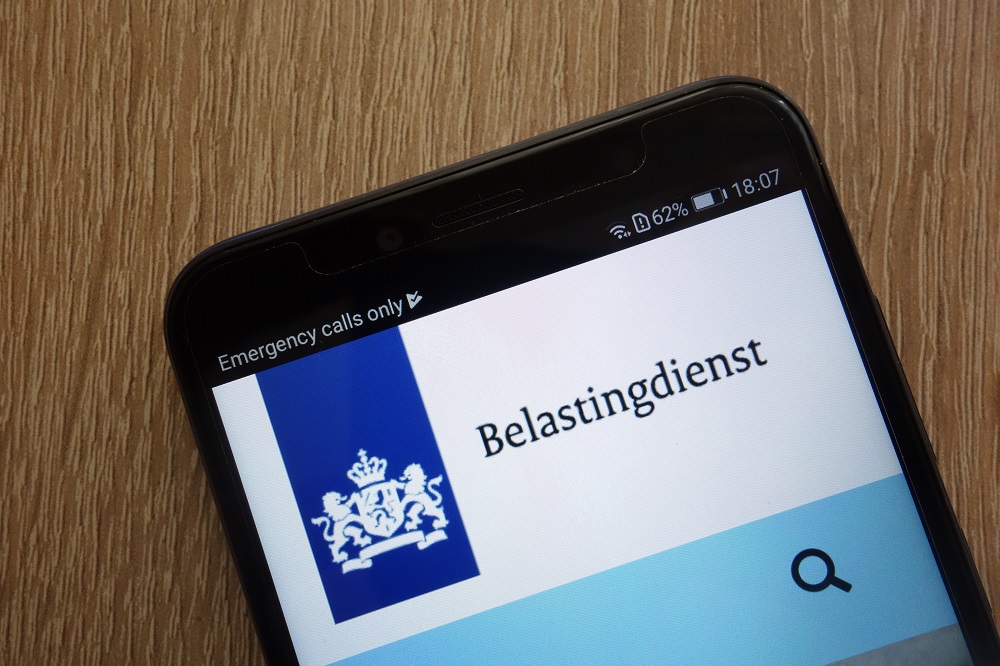Are you a little bemused by the schooling system in the Netherlands? Many expat parents worry about how their kids are going to fit in and enjoy their education. Knowing what to expect can set your mind at rest, and help you to prepare for the changes you’ll have to face. This page will give you a brief overview of how schooling works in Holland. It will teach you a bit about Dutch educational customs and rules. Plus, it will cover the ways in which different types of schooling suit different types of expat families. Lastly, it will outline a few of the common obstacles kids and parents encounter when they are acclimatising to education in NL!
About schools in the Netherlands
Before we get into detail, let’s cover the basics of Schooling in the Netherlands. There are 4 main kinds of Dutch school:
- Public schools: Your child can enroll at a public school that is within the same postcode area as your home. Public schools are non-denominational
- Schools with a religious orientation
- Schools with a different curriculum: Some schools, for example, are designed on the Montessori education system. This method of education encourages children to be creative and to have more control over their own learning. Likewise, Dalton education is a form of higher education that specializes in financial planning education
- Private schools
Schooling Customs in NL
Here are a few rules and customs of the Schooling system in the Netherlands:
- Under Dutch law, education is mandatory for all children. This includes children of all nationalities, who are residing in the Netherlands. It refers to children between the ages of 5 and 18
- A child’s education is only formerly considered complete if they have achieved a diploma
- Almost all Dutch schools are government-funded. This means that they are run on public taxes. There are, of course, a few exceptions to this
- Parents are also asked to pay a yearly set fee for ‘extras’. Extras are activities like outings and special projects. How much this fee will come to varies from school to school
- Children must decide which type of secondary education they would like to pursue in their last year of primary school
Post Primary Education in NL
Regardless of which type of primary institution your child attends, there are a variety of different paths he or she can take afterwards. Check out our article on The Dutch education system. It features a diagram and a detailed description of the various different types of secondary education that exist in the Netherlands.
 Tip
Tip
Learning Dutch
Looking to improve your child’s mother tongue at primary and/or secondary school level? Contact your embassy, and ask for information about foreign, after-school language programs in your area.
If you, and your family, are looking to improve at the local language, read up on how to learn Dutch in the Netherlands.
International Dutch schools
In order to make international education more accessible to expatriate children, the Dutch government has started to subsidize some international departments. Here are the bullet points:
- The government is now helping to fund both primary and secondary ‘International Dutch Schools’, throughout the Netherlands
- These schools follow an international curriculum, in English
- They teach according to the international standard, and charge a relatively low fee compared to private schools
- This fee is, unfortunately, mandatory and non-negotiable
- The qualifications for admission to these schools are set by the Dutch Ministry of Education
Entry Requirements for International Dutch School
Students may be admitted if they are from:
- A non-Dutch family who have expatriate status and are living in the Netherlands. In this case, the child will be allowed to attend the school for a temporary period only
- An internationally-mobile Dutch family whose children have been largely educated abroad. Generally, it is advised that these children attend an international institution. It is considered to be less unsettling for them than Dutch school, and it is meant to give them some educational continuity
- A Dutch family who will soon be undertaking an international assignment outside of the Netherlands. It can be helpful for these children to attend an international school. It should help prepare them for the switch they will have to make from Dutch to English education. Again, they can only attend and international Dutch school for a maximum of one year
The international school curriculum
- International primary schools offer either the International Primary Curriculum or the International Baccalaureate (IB) Primary Years Program
- At Secondary school, there are two different international ‘middle years curriculums’ available. Children can opt to follow either the IB Middle Years Program, or the Cambridge International General Certificate of Secondary Education (IGCSE)
The International Baccalaureate
- All international schools offer the IB Diploma Program. Pupils take this program in their final two years of high school
- The IB Diploma is widely considered to provide a well-balanced pre-university education
- It is an acceptable entrance qualification for top universities around the world
- Private schools may have a different curriculum for their junior and their senior departments
- However, both the American School of The Hague and the British School in the Netherlands give students the opportunity to follow either the national curriculum or the IB
- All Dutch International Secondary schools offer the IB Diploma Program in the final two years of High School.
Schooling issues for expats in NL
International schools, or international Dutch schools, may seem like the obvious answer for all expatriate children living in the Netherlands. However, they might not be for everyone. Many parents are actually interested in getting their children into Dutch schools. Here is why:
Prices
- For many expatriates, International schools are simply too expensive, whether or not they are government subsidized
- Unless you earn a substantial salary, or your employer foots the bill for you, the fees can just be too much
Culture Shock
- For some children, including those who went to a Dutch primary school, the international school customs may be a shock to the system
- Practices like wearing a school uniform everyday can seem overly strict
- International schools may be better suited to more ‘mobile’ expats. By mobile, we mean expats who find themselves uprooted every few years, to move on to Geneva or Singapore
Dutch School is Great!
- Dutch schools are very good! The majority of Dutch schools give their pupils a high quality education, for a far cheaper price
- Parents who do not plan on moving often wish to really establish a home in the Netherlands
- They want their children to fully integrate into Dutch culture
VMBOs aren’t for Everyone
- If your kids do not have a sufficient mastery of the Dutch language, by the time they finish primary school, they will have to attend a VMBO school
- This can lead to frustration. VMBOs can prove not to be academically challenging enough for some expatriate students
- This is often because they are only struggling with language, as opposed to academia in general
Dutch School is not for everyone
However, expatriates sometimes find themselves in a confusing middle ground. Dutch schools can be an appealing alternative to international school, but they present problems for expats as well!
- Some expatriates believe that Dutch schools could do a lot more to integrate foreign children into the Dutch system
- If children have already started school in another country, and then have to learn Dutch, they can find it especially challenging
- Dutch schools can prove to be a culture shock to expat parents in several ways. For example, parents are expected to play a large part in their children’s education
Responsibilities of Expat Parents
Expat parents are sometimes taken aback by how they are constantly called upon to:
- Teach their kids to read and write
- Take part in school trips
- Provide their children with an endless supply of card and paint for creative projects
- Make cakes for sports day
- The list goes on!
For more information on this, why not read more about whether to send your children to local or international school?
 Side Note
Side Note
Where to Find International Schools in NL
- You will find Dutch international schools in cities throughout the Netherlands, including: Maastricht, Eindhoven, Arnhem, Enschede, Groningen, Utrecht, Almere, Amsterdam, Haarlem (which has a Primary school and will open a Secondary school in 2018), the Leiden region, The Hague, Delft (which has a primary school only), Rotterdam and Breda
- Private international schools can be found in the Randstad area, which consists of Amsterdam, The Hague, and Rotterdam. Eerde and Ommen have international schools as well
- A complete, up-to-date list of international schools can be found at: www.educaide.nl
- The International Parent’s Student Support Group in the Netherlands is a great information platform for parents of children who are attending Dutch International Secondary schools
International Boarding School
- There are two international Boarding schools that offer the IB Diploma program: the IS, Eerde and the United World College, Maastricht
- A Boarding House for internationals, Bas Bouwlust, has recently moved from Oegstgeest to The Hague
 Recommended reading
Recommended reading
- RAISING GLOBAL NOMADS: Parenting in an On-Demand World
Published by Expatriate Press
By Robin Pascoe - THIRD CULTURE KIDS: The Experience of Growing up Among Worlds
By David C. Pollock and Ruth E. Van Reken

The Holland Handbook 2024
It is that time of year again; the new and annually-updated version of The ...

Dutch Taxes
Taxes are always complicated. If you have moved to the Netherlands from another country they ...

The UnDutchables 9.0
Following the legendary previous eight editions of The UnDutchables, the 9th edition of this all ...

Making the most of your Dutch home
Whether you are renting, staying in a long-term AirBNB or have just bought a ...

Gift giving in the Netherlands-all ...
If you feel like skipping your birthday, you may be in for a challenge when ...

10 things you will find in every Du ...
The Dutch are very fond of houseplants, the more the merrier! You will find the ...

Obtaining a Mortgage as an Expat in ...
Obtaining a mortgage as an expat in the Netherlands can be a complex process, as ...

Help me move to the Netherlands!
Obviously, the decision to move to the Netherlands is not one to be taken lightly ...

The Impact of Technology on Educati ...
Education is unending and pivotal in society. Technology is one of the most dynamic entities ...

Five Renovation Tips to Increase yo ...
Learn how much home renovations cost – and which repairs increase the home value, and which ...